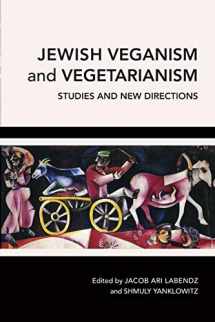
Jewish Veganism and Vegetarianism: Studies and New Directions
Book details
Summary
Description
A multidisciplinary approach to the study of veganism, vegetarianism, and meat avoidance among Jews, both historical and contemporary.
In recent decades, as more Jews have adopted plant-based lifestyles, Jewish vegan and vegetarian movements have become increasingly prominent. This book explores the intellectual, religious, and historical roots of veganism and vegetarianism among Jews and presents compelling new directions in Jewish thought, ethics, and foodways. The contributors, including scholars, rabbis, and activists, explore how Judaism has inspired Jews to eschew animal products and how such choices, even when not directly inspired by Judaism, have enriched and helped define Jewishness. Individually, and as a collection, the chapters in this book provide an opportunity to meditate on what may make veganism and vegetarianism particularly Jewish, as well as the potential distinctiveness of Jewish veganism and vegetarianism. The authors also examine the connections between Jewish veganism and vegetarianism and other movements, while calling attention to divisions among Jewish vegans and vegetarians, to the specific challenges of fusing Jewishness and a plant-based lifestyle, and to the resistance Jewish vegans and vegetarians can face from parts of the Jewish community. The book’s various perspectives represent the cultural, theological, and ideological diversity among Jews invested in such conversations and introduce prominent debates within their movements.


We would LOVE it if you could help us and other readers by reviewing the book
Book review



